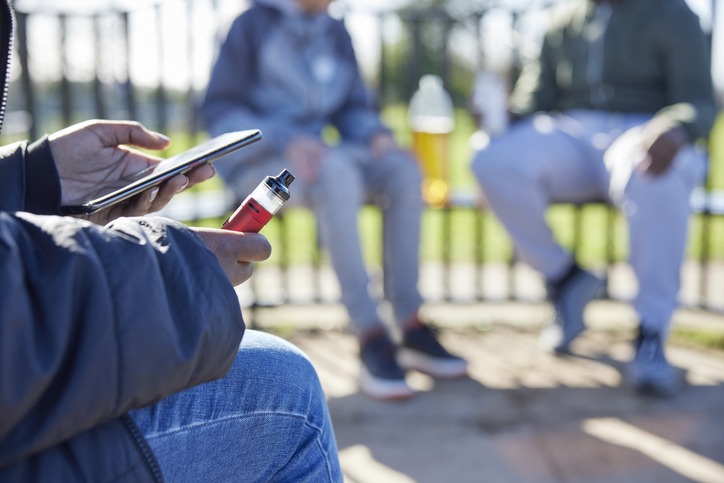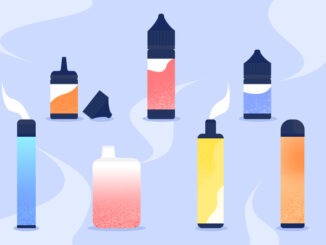
As reported by BBC, a recent survey conducted by an NHS trust has unveiled concerning statistics regarding vaping among school-age children in the UK, prompting calls for stronger regulations to curb this growing issue
The NHS trust said some pupils used them when they woke at night while some schools had to make toilets off limits.
In a survey, it found 9-10% of year seven and year 10 pupils vaped daily.
Research by other organisations focusing on weekly use has shown an increase to around 8% among 11-18-year-olds.
Daniel Payne, 20, from Cardiff, said he was 12 when he started smoking, but turned to vaping five or six years ago.
“There was talk of vaping being healthier than smoking, so I thought it would probably be better for me if I vaped instead of smoked,” he said.
“I was able to vape in school on my breaks – that’s where I got them from, from other students.”
Daniel Payne said vaping has not been cheaper for him, as he spends about £50 every two to three weeks when using refillable vapes, or about £10 a week if he uses disposables.
He acknowledged they can be addictive “especially when you start young like I did”, adding: “Vapes taste so much better than tobacco.
“Plus there’s less hassle rolling fags, when you can just take a vape out and smoke it and put it back for later.”
BBC Wales spoke to about a dozen young people, aged between 16 and 20, about their vaping habits.
While none of them wanted to speak on the record, they all felt vapes were addictive.
The ease of availability was clear, with many saying friends buy vapes in bulk and sell them on in school or college, while one 16-year-old girl said her mum buys them for her.
PHW’s health improvement director, Dr Julie Bishop, said pupils were using school toilets to vape in between and during lessons.
“That means [schools] have had to take other action like making the toilets off limits,” she said.
“That has other consequences for children and young people’s wellbeing.
“We’ve also had reports of young people who can’t go any long period of time without vaping.
“They might not be able to get through a lesson, not be able to sleep properly [or are] getting up in the night.”
Dr Bishop said vaping in the night was an indicator of dependency or addiction.
Dr Julie Bishop said some children were vaping when waking up during the night.
She added: “These products are quite attractive to even quite little children, so actually there’s a risk of quite small children potentially picking them up and using them inappropriately.
“Because perhaps parents don’t necessarily think about them as something that would be dangerous, like you would a lit cigarette, for example.
“One of our main concerns at the moment [is] that these products, particularly the disposable ones, are everywhere.”
Dr Bishop believed it was “fantastic” if parents were using them to help them quit smoking.
“But what we really don’t want to see is a generation of children growing up thinking that vaping is something normal to do,” she said.
It is illegal for vape products to be sold to under-18s.
“It’s very obvious that’s not working,” Dr Bishop added.
An incident response group (IRG) has been set up by PHW to investigate the scale of the problem and what could be done.
This could include new legislation.
“The IRG will be thinking about what are the kind of measures that could be taken to strengthen some of those regulations that would make this problem significantly reduced,” Dr Bishop said.



Be the first to comment